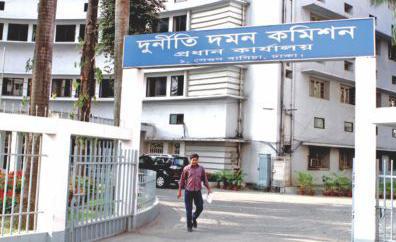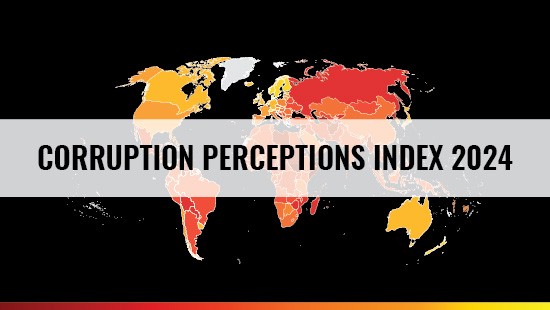Published: 07 January 2013
A tale of two govt institutions
The Office of the Comptroller and Auditor General is more independent than the Anti-Corruption Commission
Iftekharuzzaman
 |
|
The Anti-Corruption Commission remained far short of meeting expectations though it has been much more active during the last four years, taking on a large number of corruption cases.Photo: STAR |
The Office of the Comptroller and Auditor General (OCAG) of Bangladesh appears to have been relatively more active and somewhat effective in the last four years. Compared to the Anti-Corruption Commission, the OCAG has much more defined and specific time-bound jurisdiction and tasks which they have delivered relatively well.
The public Accounts Committee of the parliament has been visibly more active than in the past, hence the advantage for the OCAG was that they had been the takers of the product they produced, and at least for a change some results were achieved, limited though. Much more could be achieved if there were higher levels of commitment at the relevant ministries and departments to deliver.
The ACC on the other hand, being in a much more complex situation for the nature of its job, specifically in a context that observed a sort of race of high profile corruption involving people in positions of power, remained far short of meeting expectations. To be fair, they have been much more active, or rather had to be so, during the period than before, taking on a large number of corruption cases, including a few involving people within the government and the ruling party.
However, in my view, for the lack of a proper strategy and determination, the ACC has missed the opportunity to gain public trust and credibility. Their handling of alleged corruption in the Padma bridge project is a case in point. Notwithstanding the debate on whether or not they were right in enlisting former ministers only as “suspects”, the fact remains that the position they took on some related issues reflected a mirror image of that of the government. This may be because of perceived political pressure or for the lack of their own capacity and courage or a weak communication strategy, or a combination of all three.
Be that as it may, it must be remembered that success and effectiveness of both ACC and OCAG only partially depend on themselves. As long as there are deficits in political commitment to make such organisations and other key institutions involved in ensuring accountability and rule of law are not independent and effective enough we cannot expect much results.
Level of independence they enjoy
The OCAG is relatively more independent than the ACC. Thanks to the constitutional status as well as their work and product being relatively much less directly targeted to individuals in positions of power; they can operate without much intrusion into their flexibility.
Nevertheless, they could indeed be much more effective if the Audit Act was passed and enforced. It is worthwhile to note, however, that in spite of the constitutional mandate as per article 128(1), the OCAG has not yet conducted audit of the courts of law.
The ACC on the other hand, in spite of lacking the constitutional status and many limitations of the Anti-corruption Act 2004 on the basis of which it was created_at, can potentially function independently according to the mandate given by the law. In practice, however, the experience of the period since it was created_at shows that the degree of its independent functioning depends on external as well as internal factors.
Externally, the ACC has always been a subject of political and administrative control, whereas internally it suffers from two-fold limitations. One is the fact that in terms of the overwhelming majority of its staff, the ACC is in reality a transformed version of former Bureau of Anti-Corruption, which was itself a den of corruption and political tool in the hands of the government of the day. So it carries a baggage that is not conductive to professional delivery.
Secondly, a lot depends on the degree to which its leadership can realise that they have nothing to lose if they ignore and resist external pressures or dictate and demonstrate the courage and professional excellence needed for their high-profile position of public interest.
Is the ACC being used as a political tool to suppress dissenting voices?
Such impressions appear logical, although most of the cases handled by the ACC against individuals belonging to opposition party are perceived to have merit. Take the case of the repatriation of the laundered money from Singapore. Even if people have doubts about the efficiency and credibility of the ACC or of government motivation, and even if one may not like to give credit to the ACC for it, the fact remains that the money has come back only because it has been proven according to Singapore law enforcement authorities that it was laundered money.
On the other hand, the ACC has not also served its cause by often debatably echoing the government position. They also on occasions handled some cases that involved individuals belonging to the ruling party, such as the Padma bridge project and the railway scandal, in a manner that gave an impression that they were hesitant to take firm action against some individuals in positions of power.
Government attention onto the two
The OCAG is understaffed to the extent that it cannot undertake as many audits as they need to. More importantly, there is a shortage of technically skilled manpower in specialised fields such as engineering. They cannot even hire short-term expertise, for which they depend on the finance ministry, which is reportedly not always responsive.
The ACC has a more complicated problem, as mentioned above. They do have at least in the head office a large number of staff at various levels about whom there are doubts about credibility based on their record and expertise during the Bureau of Anti- Corruption period.
On the other hand, in the field level, in addition to issues of credibility and expertise, under-staffing remains a problem. Some mid-level staff members have recently been directly recruited who appear to be enthusiastic, but lot needs to be done to build their capacity to handle corruption cases in which those who are involved are smarter and more endowed. The ACC's legal and prosecution capacity also remains weak, backdated and far from matching the expertise that its opponents can deploy.
Reforms
The OCAG is more open and its communication also appears better. The Audit Act must be passed without any further delay to make the OCAG more effective. One other issue that needs to be addressed is the independent functioning of the Office of the Controller General of Accounts from the OCGA as well as the ministry. The CGA functions are complimentary but must be separated from being influenced by both.
Contrary to the government's electoral commitment, a set of amendments to the anticorruption Act was introduced that could have further curtailed the independence and effectiveness of the Commission. In response to sustained demand from the media and civil society, they eventually stepped back from those amendments, which is good news.
We are also told that a more positive set of amendments is now awaiting adoption, which, however, remains undisclosed. The amended draft must be shared with the public and subject to consultation with stakeholders. Any further delay will have further crippling effect on the ACC which has in any case gone through a sort of psychological pressure over the period since the amendments were introduced in 2010.
The government and lawmakers must demonstrate the political will to create conducive legal and institutional capacity of these institutions including resource endowment in terms of human, financial and technical means. Although created_at by the government, they must not be perceived as part of the government, rather as institutions to hold the government accountable in public interest.
On the other hand, there is also a need for a mindset change in the leaderships of these institutions. They must realise they should not expect to gain anything from the government or political authority after their tenure in these bodies. All they stand to gain is public trust and credibility if they play their due role.
One other suggestion is that the OCAG and ACC should work out specific ways and means to work together to complement each other, which is an area in which nothing has been done. To that end, undertaking a task-oriented joint strategic planning exercise may be considered.
Dr Iftekharuzzaman, executive director of Transparency International
Bangladesh (TIB)
This Article has been published in ![]() on Monday, 7 January, 2013
on Monday, 7 January, 2013







